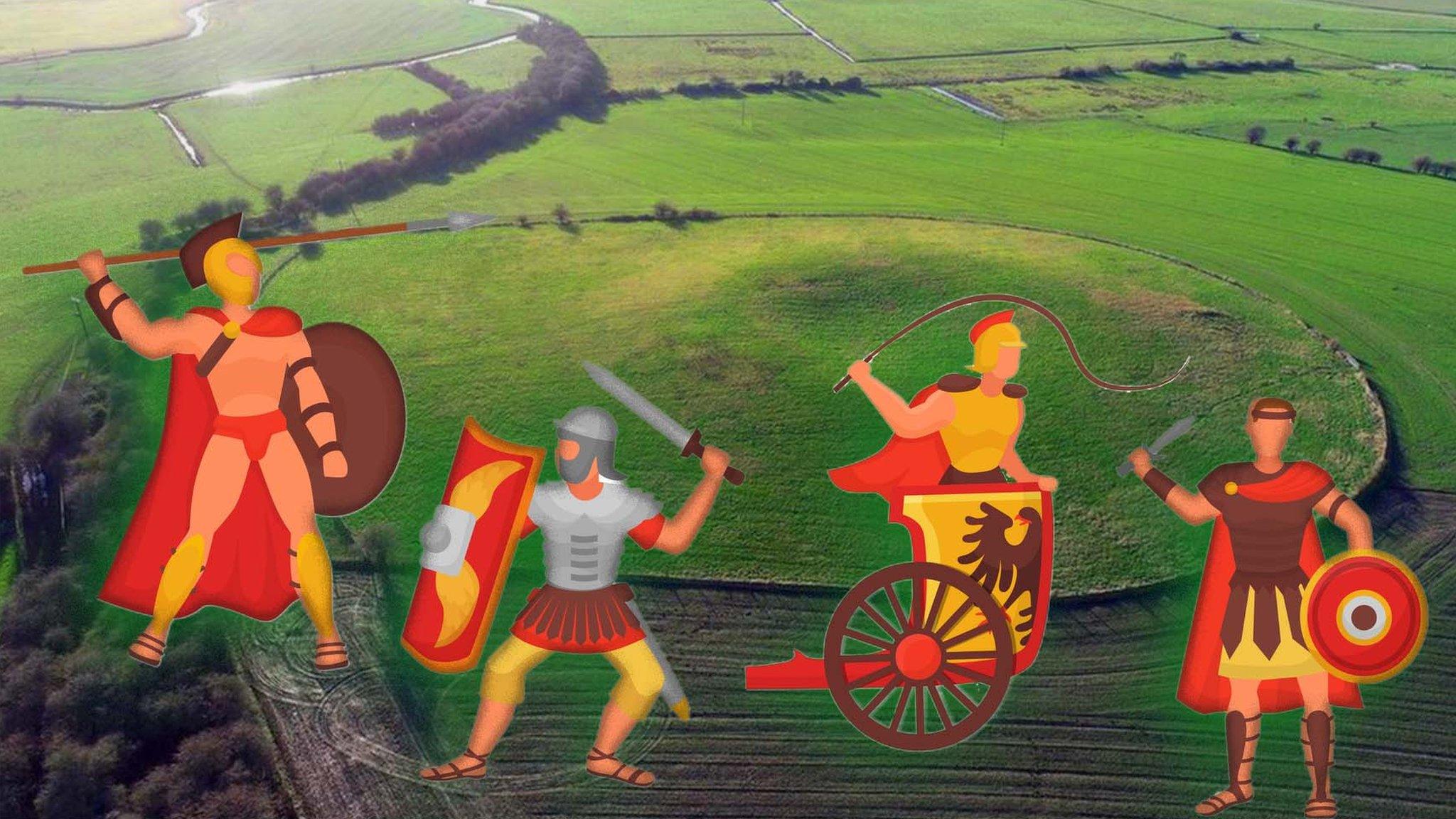Archaeology: 20-million-year-old fossilised tree found in Greece
- Published
- comments
Take a look at this video of the excavation site
Greek scientists say they have found a rare fossilised tree whose branches and roots are still intact after 20 million years.
The tree was discovered on the volcanic island of Lesbos during roadworks and is so old that scientists believe our ape ancestors could have swung on it!
The site is near an ancient forest, petrified millions of years ago on the eastern Mediterranean island.
It is the first time a tree has been found in such good condition, complete with branches and roots, since excavations began in 1995.
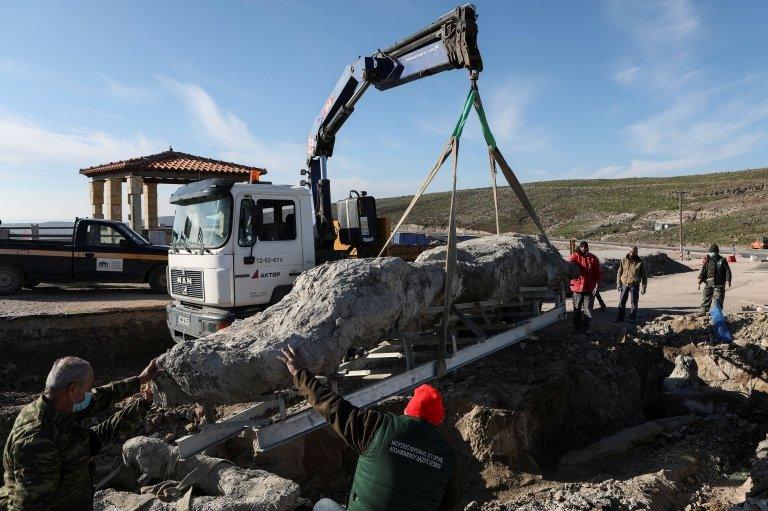
The trunk was removed from the site to be looked after and studied
The tree fossil was lifted from the site using a special splint and metal platform, and then transported to a safer place where it can be studied more closely by experts.
Professor Nikos Zouros from the Natural History Museum of the Lesbos Petrified Forest said: "It is particularly significant that the tree was found with its branches and the branches from the main trunk intact. It is a unique find of its kind because to date no similar find has been found in the area of the petrified forest.
"The find is preserved in excellent condition and from studying the fossilised wood we will be able to identify the type of plant it comes from."
The Miocene period extends from about 23 million years ago to 5 million years ago
Apes first evolved during the early Miocene
In the later Miocene some recognisable mammals could be seen including bears, beavers, deer and whales
Grasslands began to extend and forests dwindled
The Earth rock movements that led to the Himalayan mountain range began
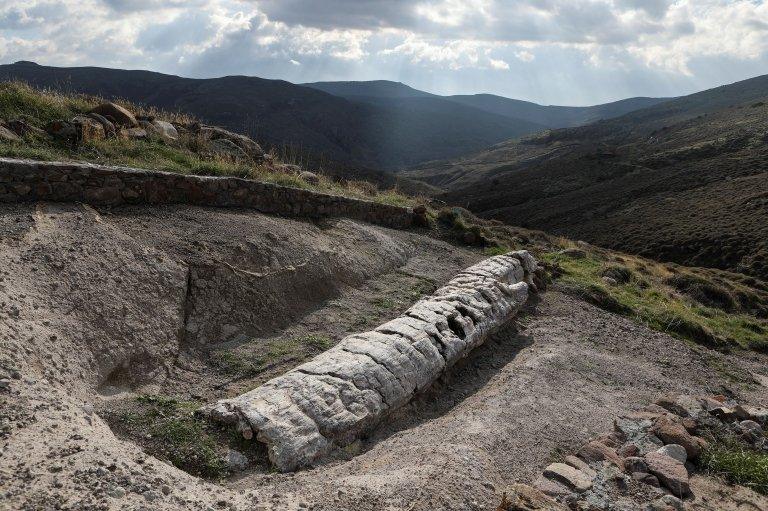
Forests on the island of Lesbos were preserved after being covered in volcanic ash
Lesbos' petrified forest, a 15,000-hectare UNESCO-protected site, is the result of a volcanic eruption 20 million years ago which smothered the island's then subtropical forest ecosystem in lava.
The fossilized tree, about 19 metres long, was preserved by a thick layer of volcanic ash after it fell.
A large number of fruit tree leaves were found in the same spot, along with animal bones from the general area.
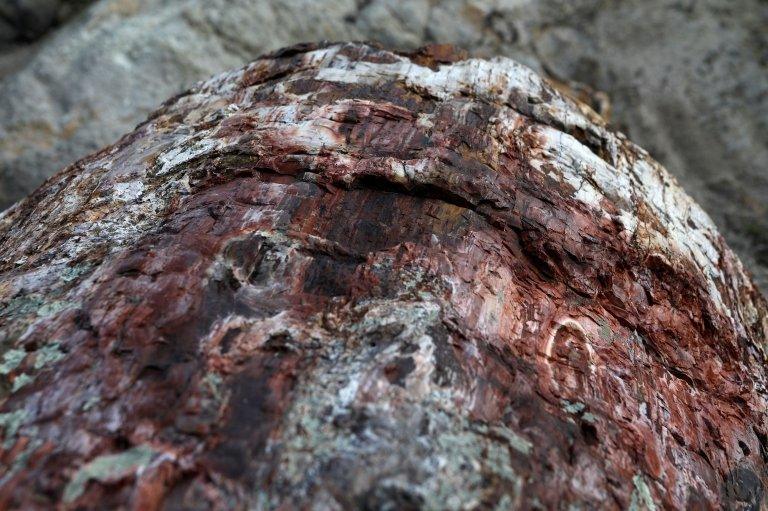
A close up of a fossilised tree
"During the excavations, the various forests that existed between 17 and 20 million years ago on Lesbos are being uncovered and we can reconstruct the ecosystem that existed during that period, gathering valuable information of not only the plants that lived in the petrified forest but also the animals that lived in these forests, (whose) bones we are finding during excavations in the petrified forest," said Prof. Zouros.
The plan is to try and create an "open museum" on the site so visitors can view the excavated findings in their original environment.
- Published19 May 2022

- Published29 August 2019
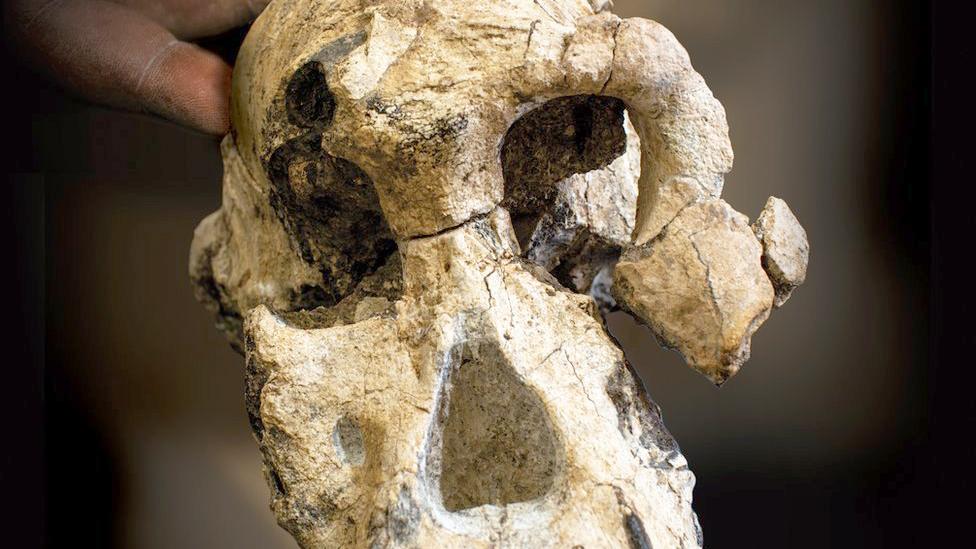
- Published10 March 2020
